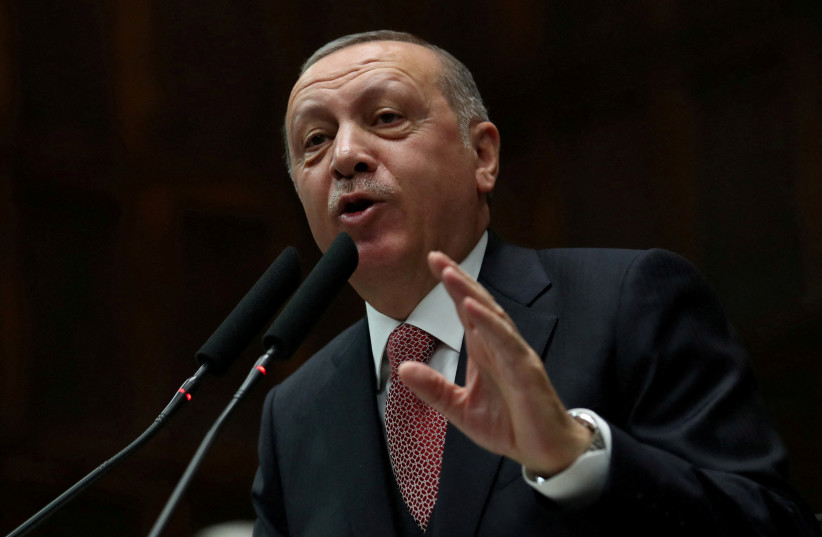Israel did not condition improved relations with Turkey on Istanbul no longer harboring Hamas terror cells, a senior diplomatic source said overnight on Tuesday.
“We didn’t set a condition,” the source said. “Certainly, in a very careful process of growing closer, there are gestures here and there. We do see increased Turkish activity against terror in their territory.”
Israel is “working very carefully on this matter,” the senior diplomatic source added.
The remarks come as senior Turkish officials were set to meet with counterparts in Israel on Wednesday, ahead of President Isaac Herzog’s planned meeting with Turkish President Recep Tayyip Erdogan next month.
Turkish Deputy Foreign Minister Sedat Önal and Ibrahim Kalin, Erdogan’s senior adviser and spokesman, led a delegation from Ankara to Jerusalem. They were scheduled to meet with Foreign Ministry Director-General Alon Ushpiz, President’s Residence Director-General Eyal Shviki, and other senior officials in both offices on Wednesday.

The visit comes after Ushpiz traveled to Turkey last December to discuss Herzog’s visit and improved relations between Ankara and Jerusalem.
Earlier this month, Prime Minister Naftali Bennett said Israel was treading cautiously regarding Erdogan’s overtures.
“Things are happening very slowly and gradually,” Bennett said, adding that Herzog’s trip to Ankara was being fully coordinated with him.
Israeli sources have emphasized that improved ties with Turkey will not come at the expense of the close ties Israel has developed with Greece and Cyprus in recent years. Herzog plans to travel to Athens and Nicosia in the next two weeks, ahead of his meeting with Erdogan.
Erdogan began expressing openness to improving relations with Israel last year. Turkey’s change in policy might be related to its declining economy and growing diplomatic isolation, which it has sought to resolve, including through a rapprochement with the UAE.
At the same time, in addition to hosting Hamas terrorists, Erdogan has accused Israel of intentionally killing Palestinian children, and state-controlled media outlets have broadcast an antisemitic television series.
Last month, the Turkish Foreign Ministry criticized Israel for evicting Palestinians who had illegally built their homes and businesses on public land, and Turkey’s Religious Affairs Ministry organized a “symposium meant to raise awareness about conflict in Jerusalem and al-Aqsa Mosque.”
Tensions between Israel and Turkey began in 2008, when prime minister Ehud Olmert met with Erdogan and launched Operation Cast Lead in the Gaza Strip days later. They peaked in 2010 when the Erdogan-linked IHH (Humanitarian Relief Foundation) sent the Mavi Marmara ship to bust the IDF’s naval blockade on Gaza, arming some of the people aboard. IDF naval commandos stopped the ship, were confronted by IHH members aboard and killed nine of them.
Israel and Turkey maintained diplomatic relations in the aftermath, even reinstalling ambassadors in 2016. But two years later, Ankara expelled Israel’s ambassador over the IDF’s response to rioting on the Gaza border.
